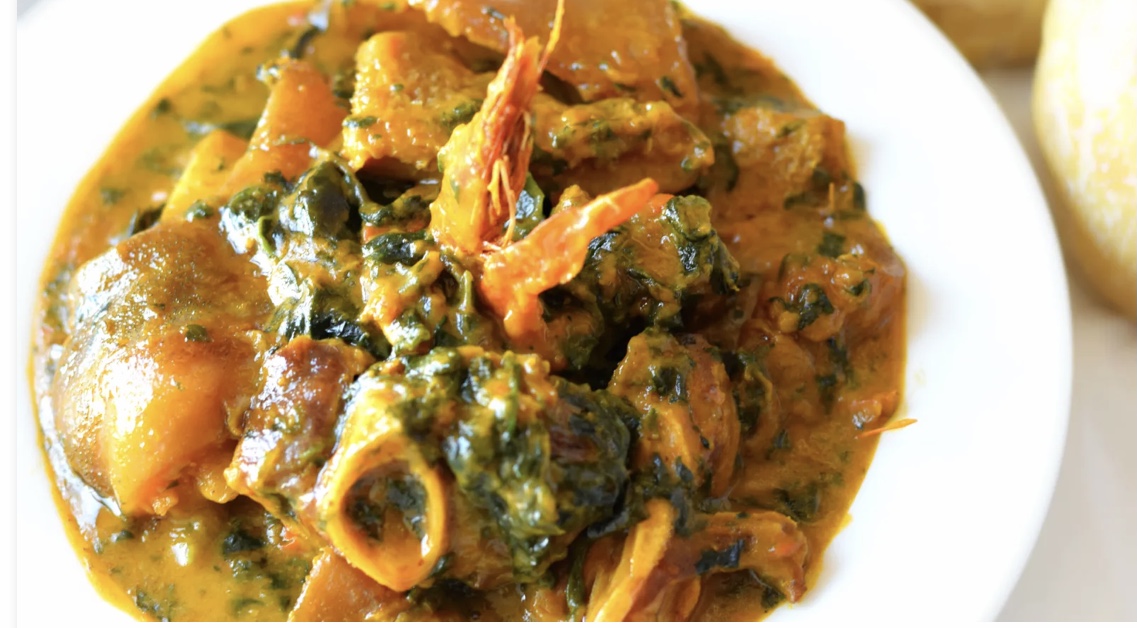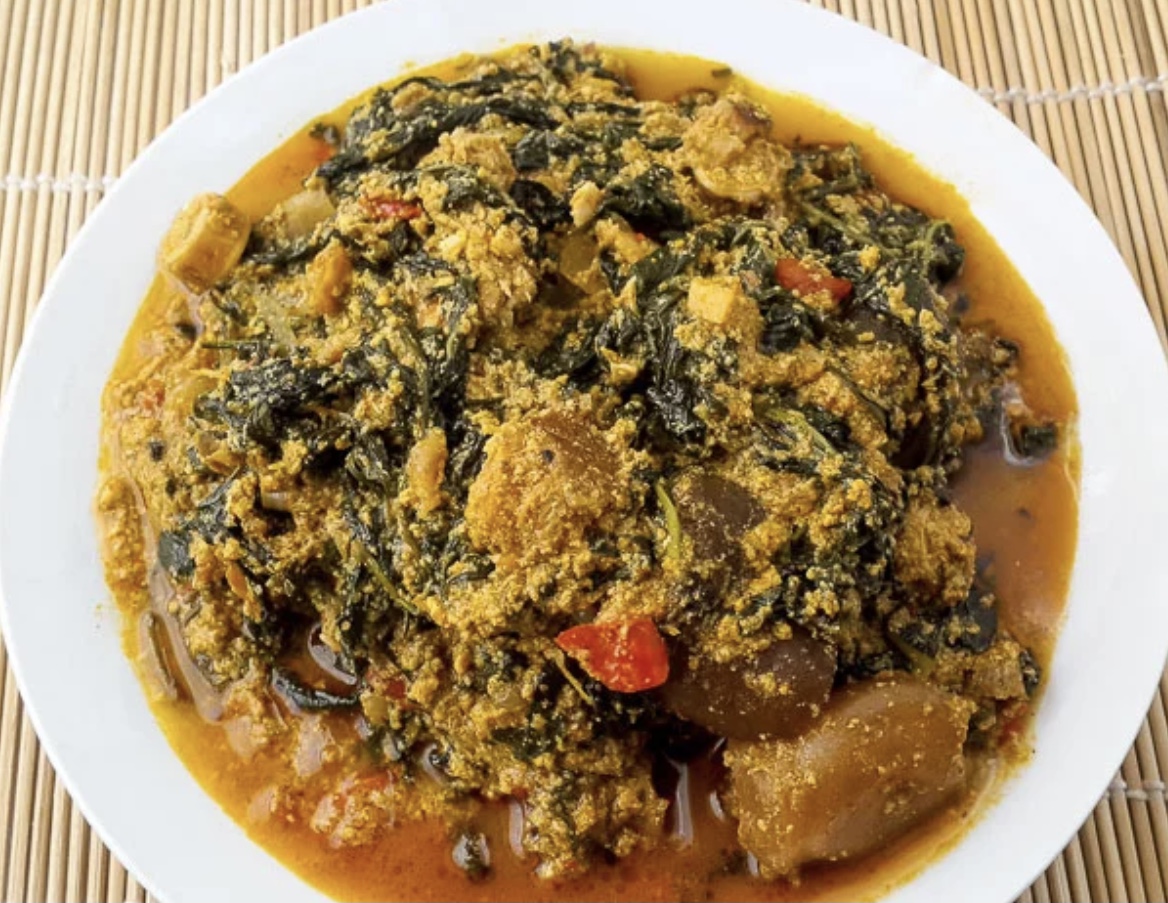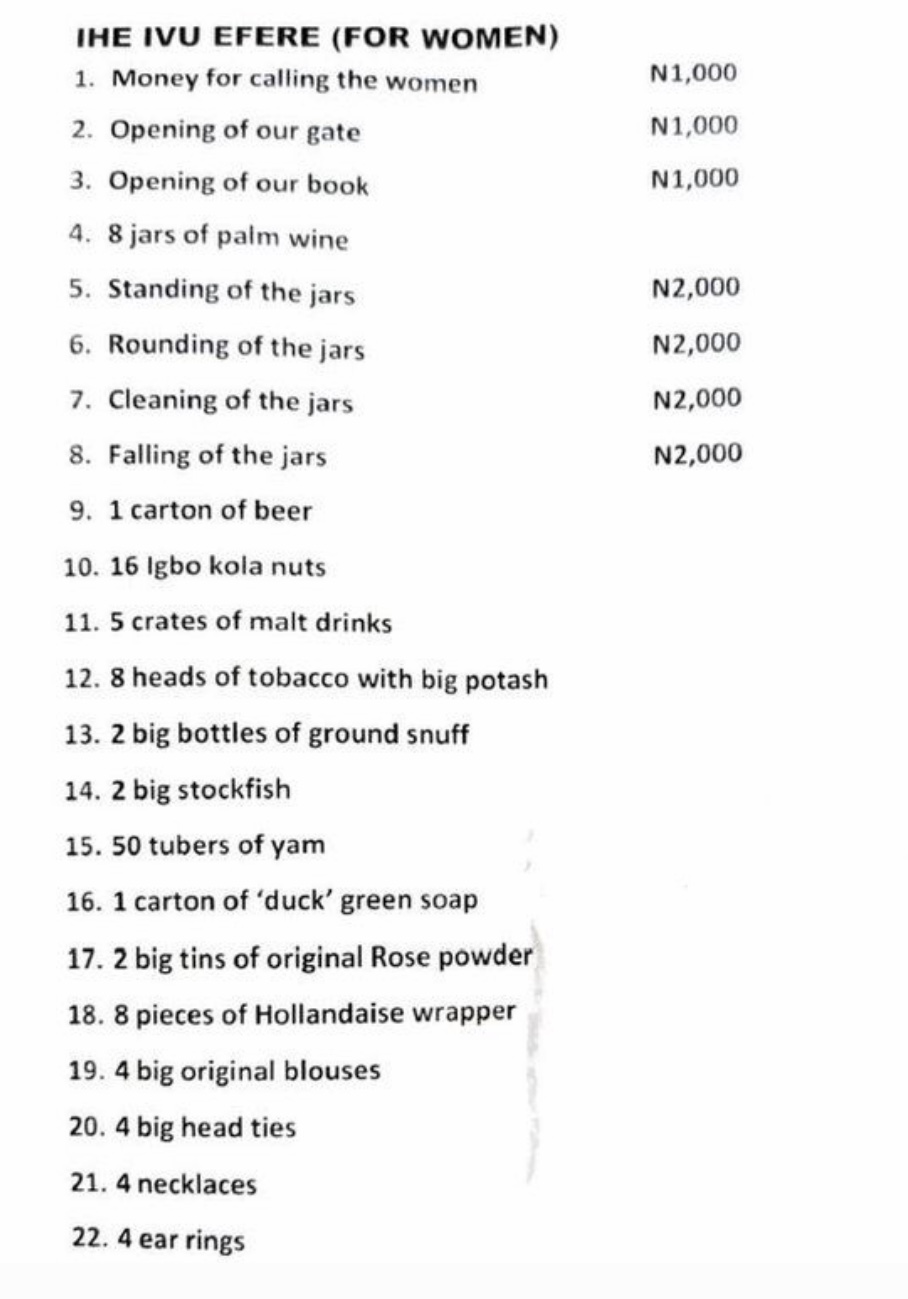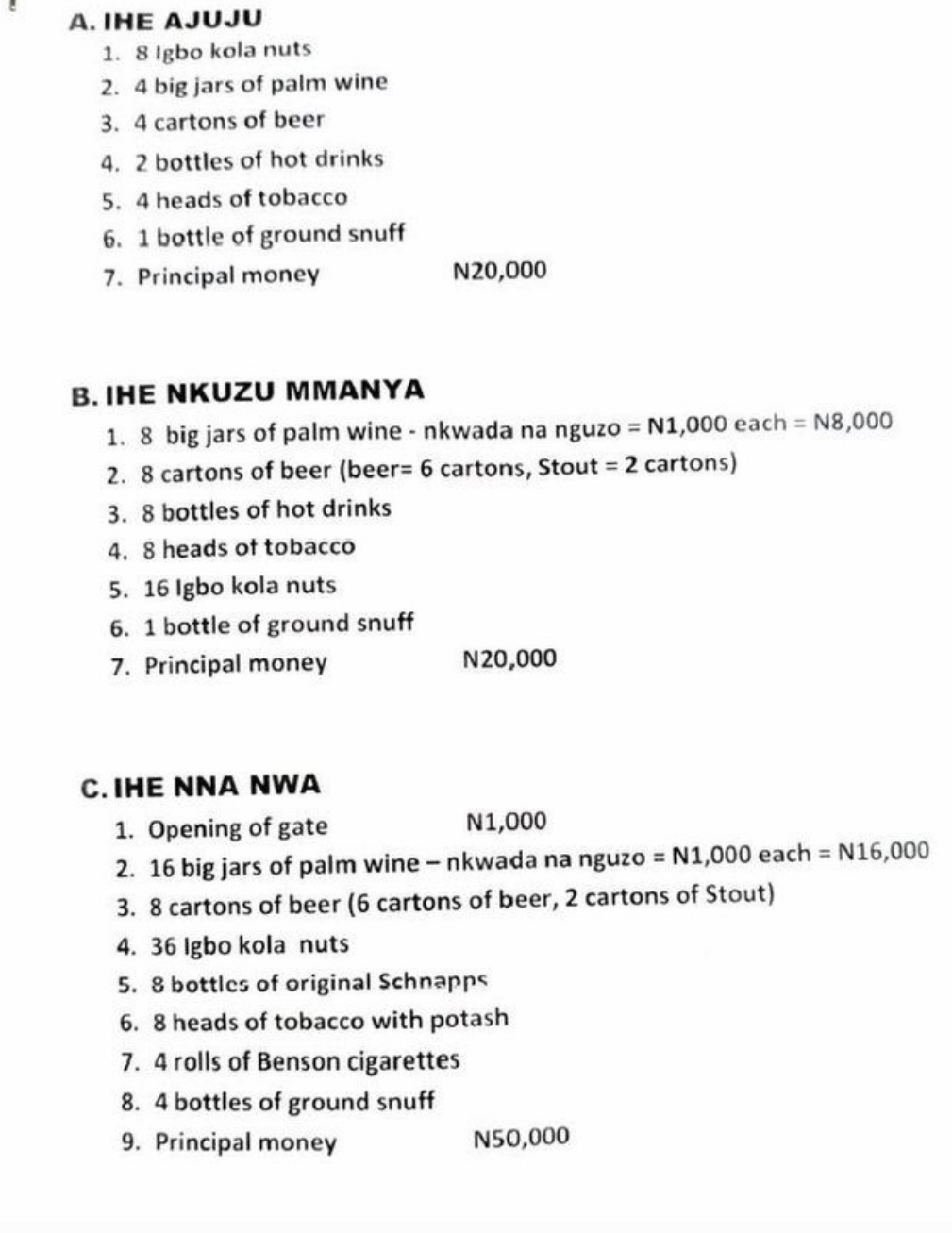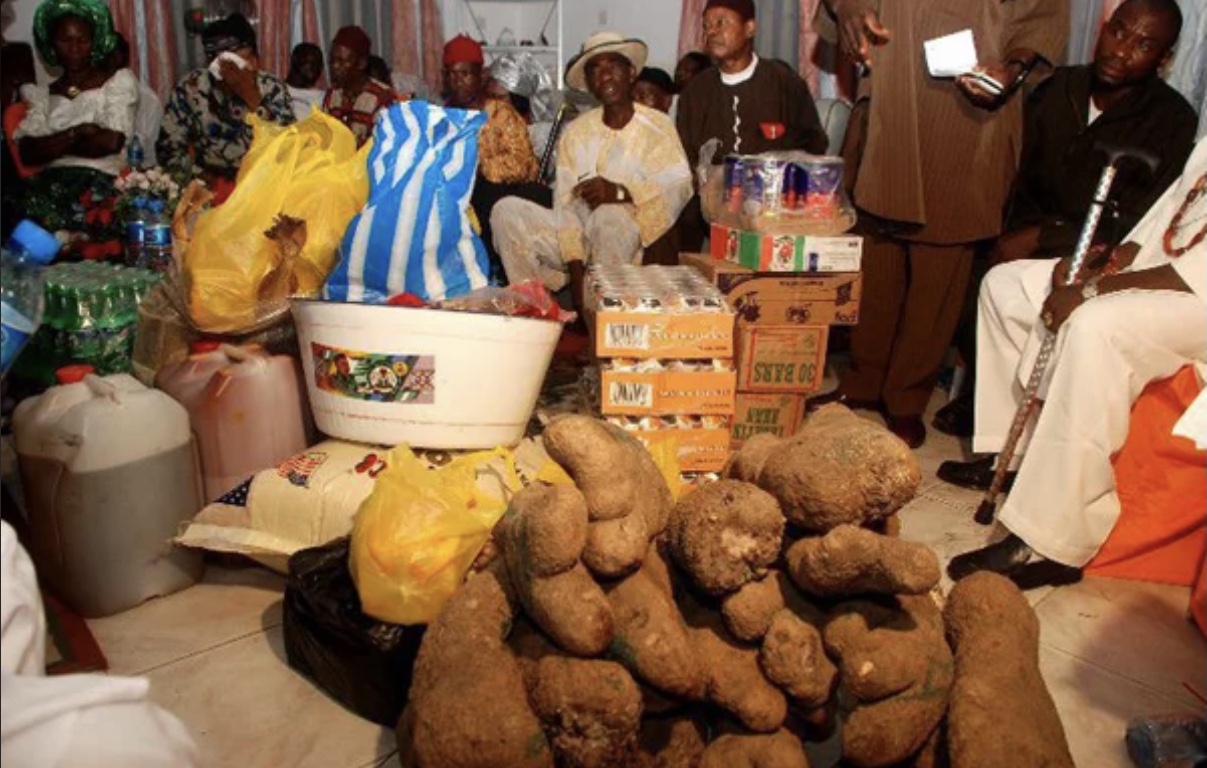The Igbo traditional wedding can not only be called a wedding but a festival, a festival of love where people gather together to celebrate and give their blessings to their sons and daughters in marriage. It’s always a colorful and beautiful sight to behold with lots of food to eat and drinks in a beautifully decorated setting. People are always eager to attend the Igbo traditional weddings because of the loud traditional music they get to listen to, the witty jokes of the MCs as well as the variety of food and drinks they get to enjoy.
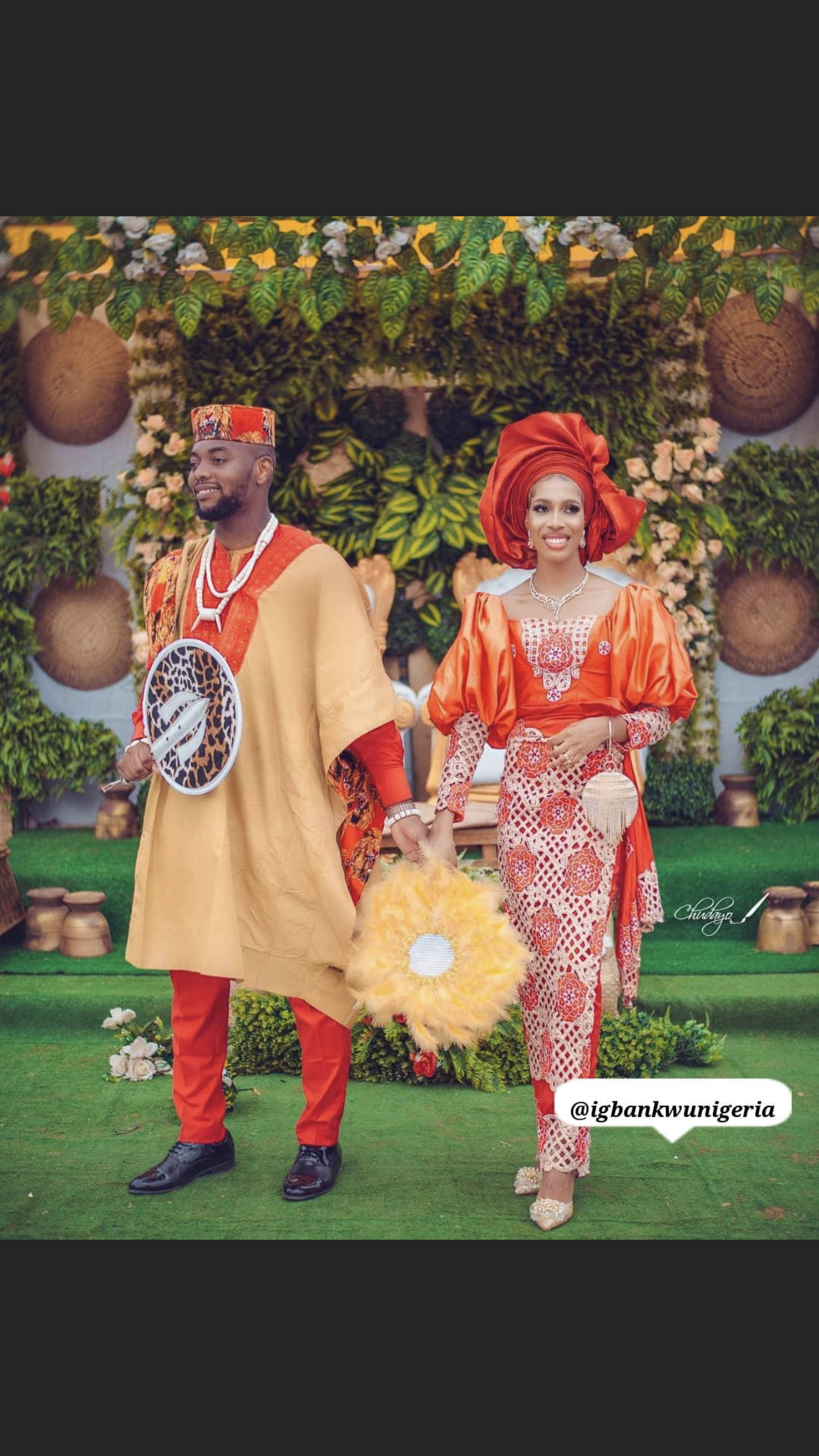
The Igbos are one of the largest single ethnic groups in Nigeria (Nigeria is one of the countries located in Africa). Igbo people can be found in the southeastern part of Nigeria, consisting of five states which includes; Anambra, Imo, Abia, Ebonyi and Enugu . The Igbo land have many interesting customs and tradition with the Igbo traditional wedding being one of them.
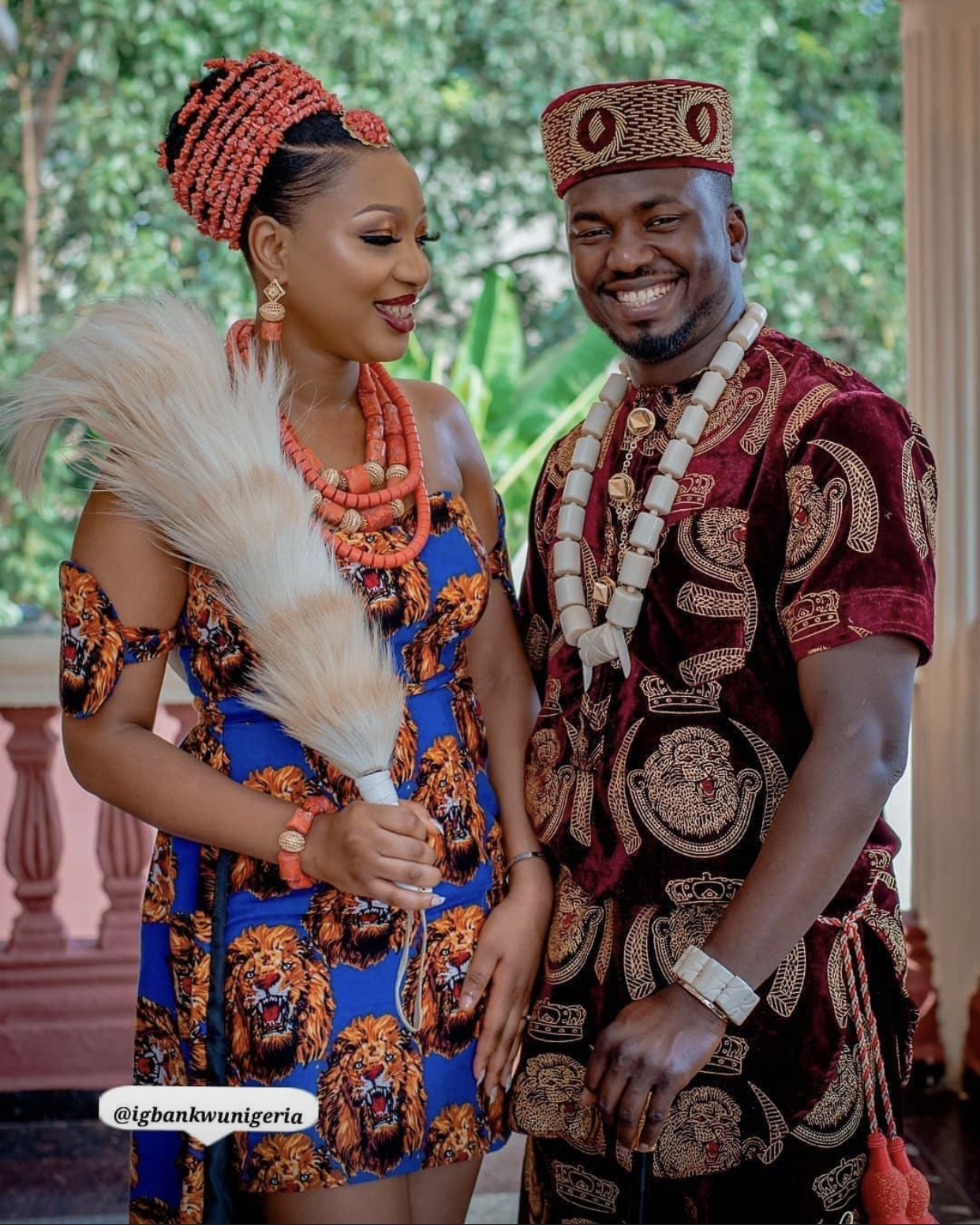
The Igbos which is sometimes referred to as Ibo, also speak the language called ‘Igbo Language’.
The Igbos are well known for their local varieties of soups which are usually made from locally grown vegetables, seeds and fruits. Some of the most common Igbo foods includes; Ofe Nsala, Ofe Oha, Ofe Owerri, Ofe Egusi, Ofe Okazi, Ofe Akwu, etc - ‘Ofe’ meaning soup in Igbo language.
Now let’s move back to the topic of the day.
The Igbo traditional wedding ceremony is called ‘Igba NKWU’ or in English language, ‘wine carrying’.
The Igbo traditional marriage is divided into different stages;
• THE FIRST STAGE is called the ‘Iku aka’ or ‘Iju see’ meaning marriage inquiry; Here, the future groom finds his wife and go ahead and tell his parents.
Unfortunately, the Igbo tradition doesn’t recognize the western proposal where by the man gets down on one knee to propose, her ‘yes’ doesn’t count as it’s not really the final say, the groom will still have to formally ‘ask’ the bride’s parents as well as her kindred- extended family in her home town for “her hand in marriage” in accordance with the Igbo custom and tradition.
The groom visits the bride’s immediate family and he is usually accompanied by his father or the eldest member of his family, that is, if his dad is deceased. They are allowed to go with some Kola nut and hot drinks as goodwill.
The groom’s father then introduces himself to the bride’s parents and states their intention or the purpose of their visit without really expecting the family of the bride to give them a positive or negative answer right away. So they schedule another date to meet again.
Before the next visit, both families are expected to carry out investigations about each other, they check their family history, background, if the families are of good morale standing in the community, her hereditary illnesses, good characters, etc.
This investigation is important because it helps determine the progress of the next meeting between both families, the bride’s family will have to decide if the groom is good enough and capable of taking care of their daughter and future children, same applies to the groom’s family.
• THE SECOND STAGE is seeking consent from the bride to be’s extended family known as ‘Umunna’.
On their return visit to the bride’s to be home, the meeting will be between the grooms family and the umunna of the bride. This is a very important meeting because the groom’s family will have to restate their son’s interest in marrying their daughter.
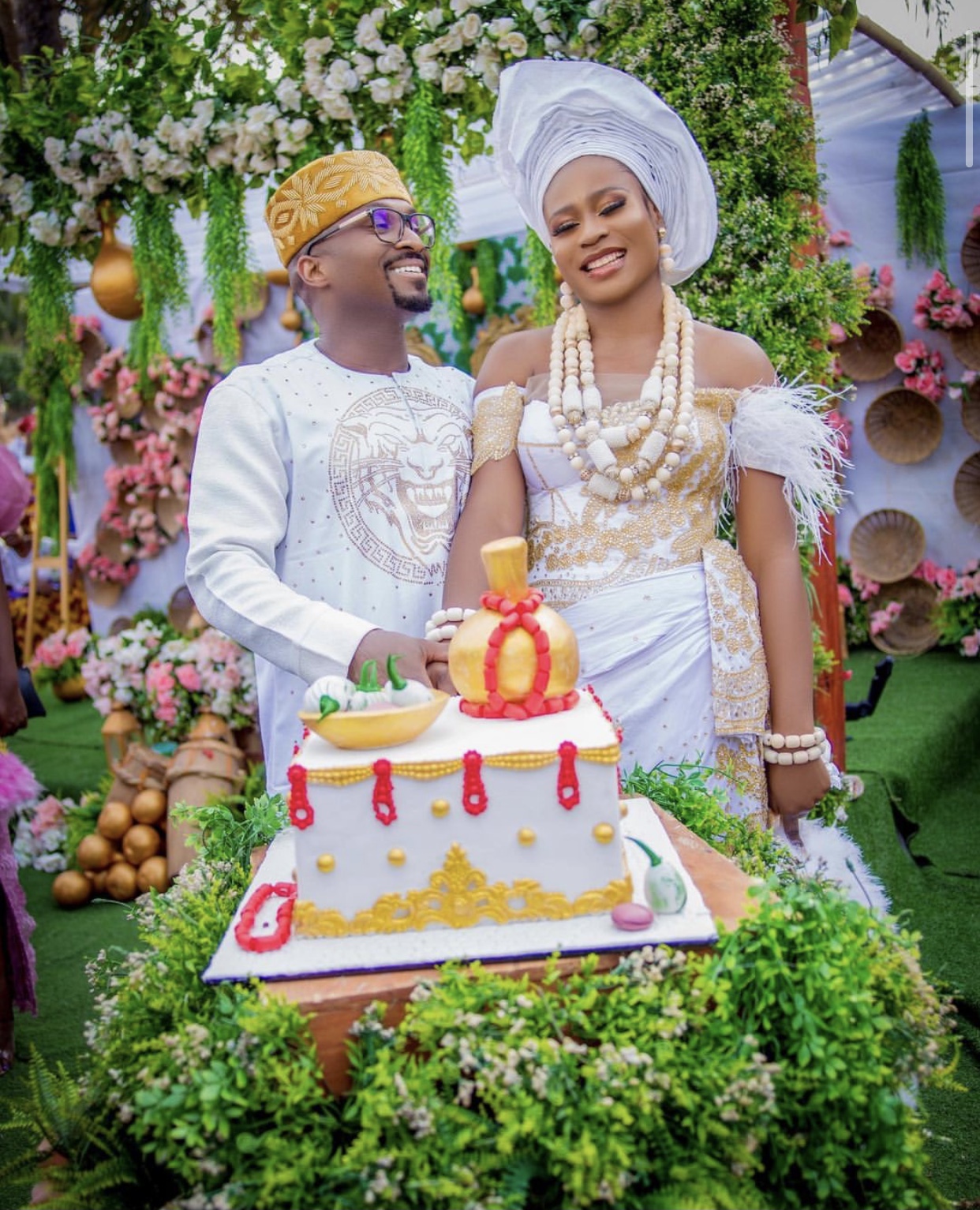
At this point, the bride’s family must have completed their investigations and consultation with their daughter.
While the meeting is still on going, the bride to be is then called out by her parents before both families and asked if she knows her suitor and agrees to marry him. Her response will then determine if they would proceed to telling the extended family and bride price negotiation. Then some items are then presented to the bride’s family by the groom’s parents, the items includes palm wine, kola nut, dry gin and soft drinks. Both families will share the food and drinks with lots of merriment.
•THE THIRD STAGE is the bride price negotiation and payment known as ‘Ime ego’ .
After the bride’s extended family gives their consent, the groom’s family then proceeds with the ime ego- bride price negotiation and payment.
The groom’s family then ask for the engagement gifts list, this differs slightly in Igbo land.
The amount of money paid for the bride price can go for as low as 30 Naira, this isn’t an indication of the bride’s worth. Other gifts to be brought make up the larger percent of the bride price.
The family of the bride compiles a list of items that the groom’s family will have to bring to the wedding ceremony as demanded by their customs and traditions. This list typically included the following:
– Gallons of palm wine.
– Tubers of yam.
– Stock fish.
– cash gifts.
– Bottle of gin.
– Kolanut.
– 1 goat.
– Packet of cigarettes (optional).
– Crates of soft drinks.
– Jewelry.
– Bundles of george (Hollandis wrappers).
The number of items required depends on the tradition of each communities.
The groom’s family then present all they have brought to the bride’s family on the day of the wine- carrying ceremony or any other agreed date.
Ime ego is usually an hectic process for both families with a lot of bragging from the bride’s side and begging from the groom’s side. The brides family never forgets to list their daughters achievements and details of all what the groom will gain by marrying their daughter. There is usually back and fort between both families until they reach and agreed amount.
•THE FINAL STAGE is the wine-carrying ceremony by the bride known as IGBA NKWU NWANYI and IDU UNO.
This is the final stage of the traditional marriage rite, the ceremony is done at the bride’s home, the groom will go with his immediate and extended family, villagers, and towns people as well as invited guests to the bride’s home town.
The bride’s family prepares a large feast (depending on their capacity) of different kinds of indigenous dishes to entertain their guests, they will also hire a live band and traditional dancers to make the ceremony interesting, both families including their extended family and members of the community will eat, dance and drink together.
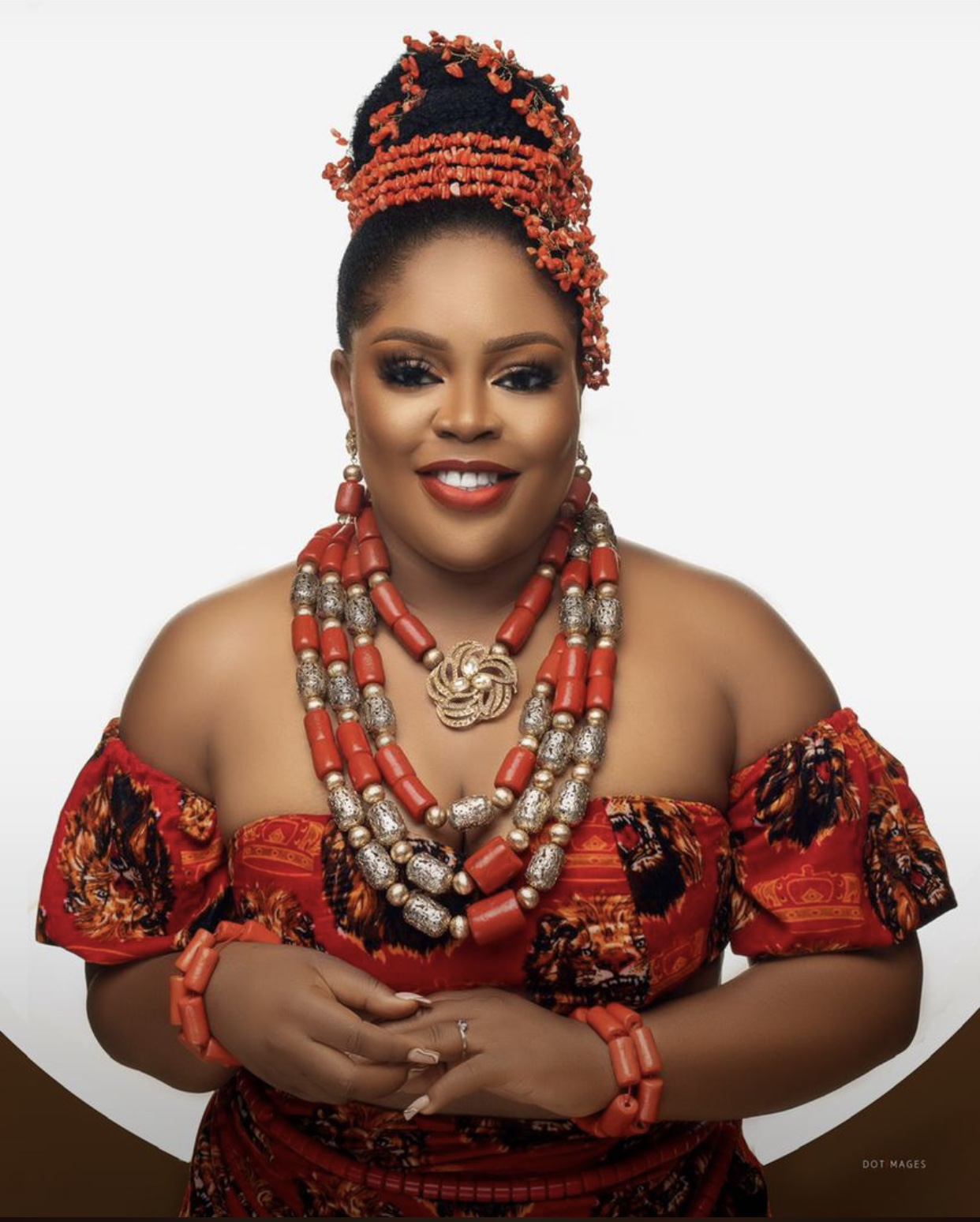
By all rites, the bride is expected to be dressed in the Igbo traditional wedding attire which includes a blouse, a double wrapper , a red or while coral bead necklace and a big head tie known as ‘Ichafu’ in Igbo language or a bead round her head. While the groom will be dressed in a caftan or isi agu with beads around his neck and a red cap on his head.
The groom is expected to be accompanied by a larger party this time with his friends included and he brings along with him the bride price list. He must present the list with the required gifts to the umunna before the ceremony begins.
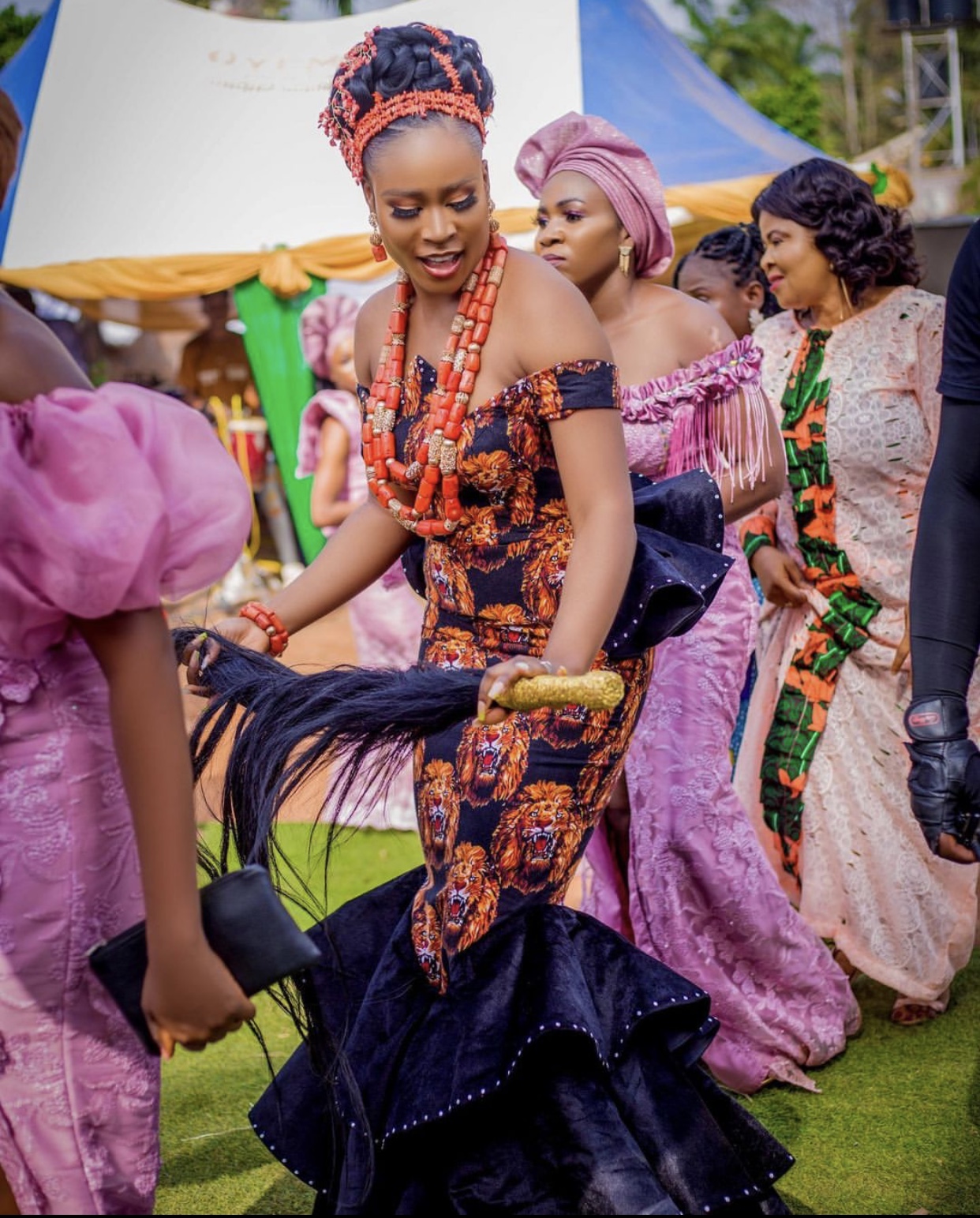
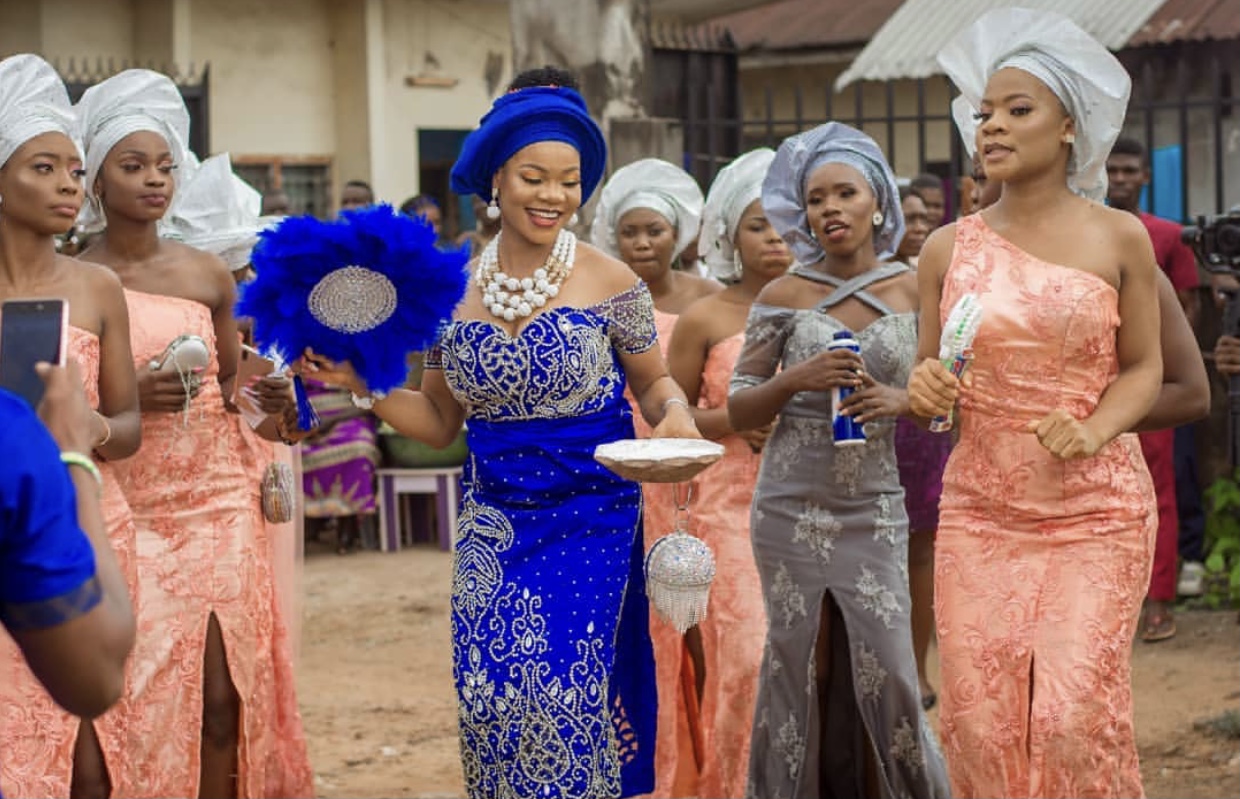
During the ceremony, the bride will be given a cup of palm wine by the bride’s father or eldest uncle (if her dad is deceased) to find the man she intends to me married to.
The bride along with her maidens goes to search for her groom who is hidden in the crowd, she searches for him with the wine in her hand. She is teased by other men and the groom’s friends also seated in the crowd to give them her wine.
After she finds him, she offers him the wine in her hand kneeling down.
He takes a sip to signify to the crowd that he is her husband. The groom and his bride then dance to meet her parents who blesses their marriage.
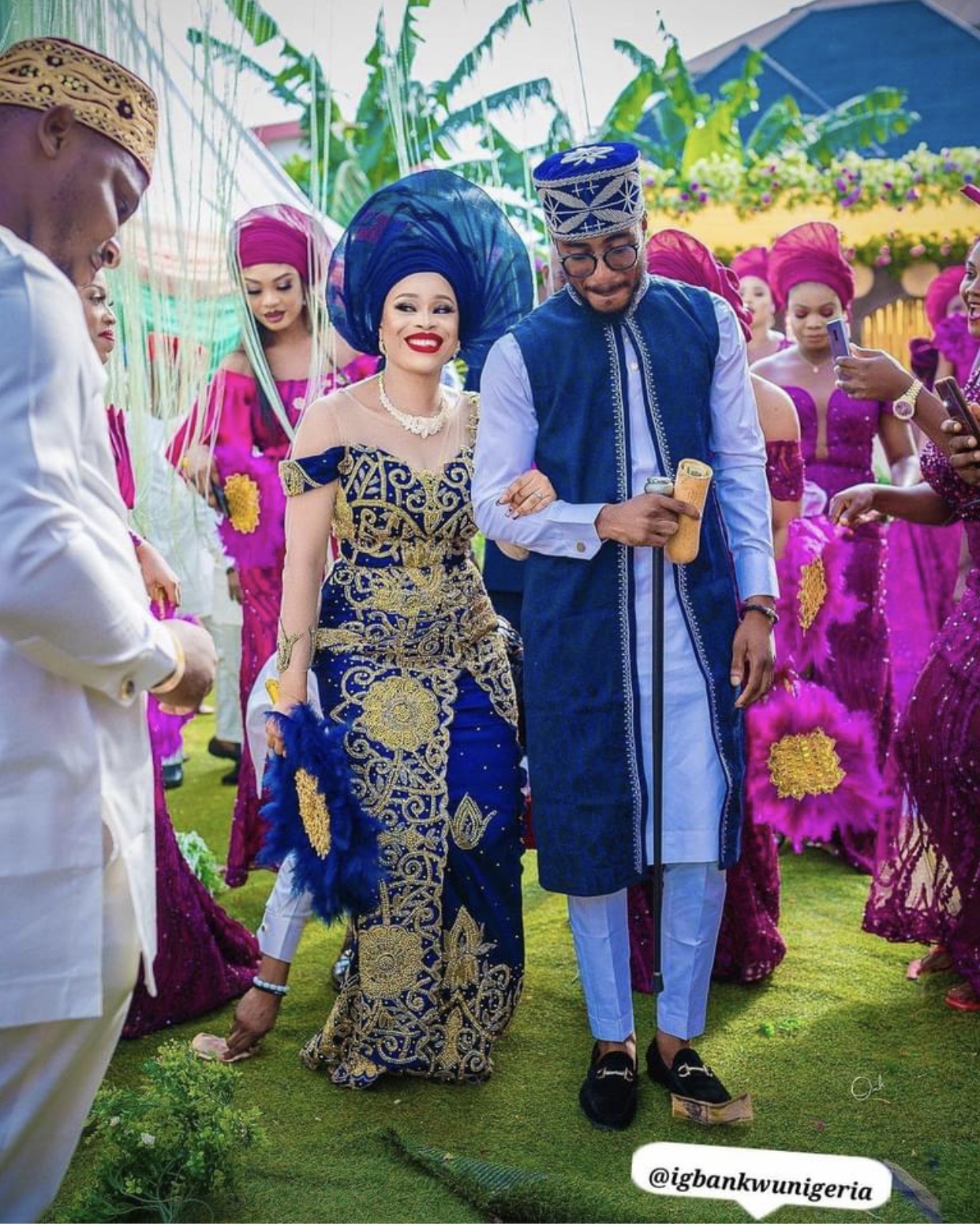
The parents and elders in the family of both the bride and the groom prays for the newly weds and prays for the success of their marriage.
The merriment begins, the newly weds will dance along with their family members and they are presented gifts by friends and family.
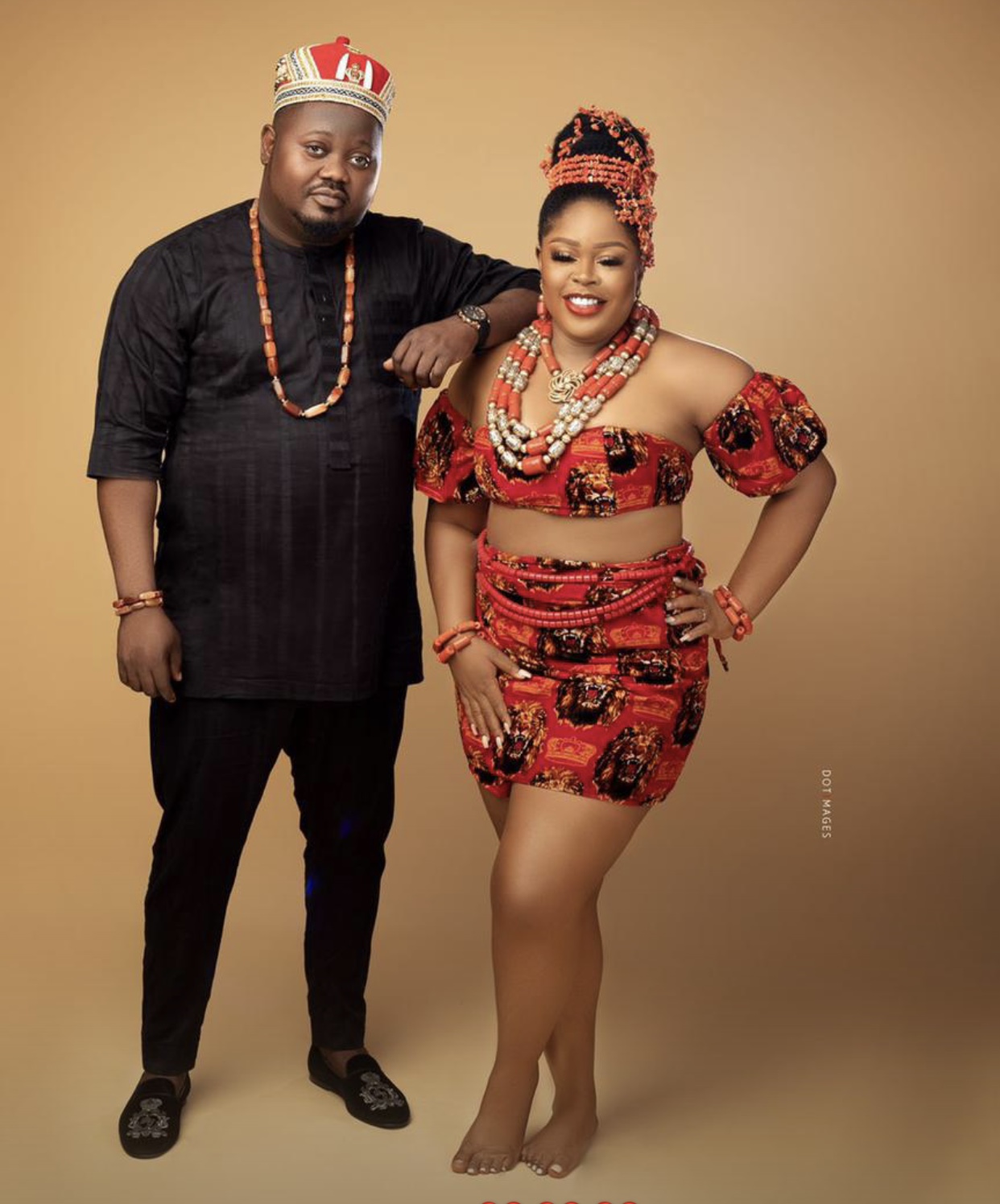
After the ceremony, IDU UNO comes next, here, the bride goes home with the family of the groom. Before the journey, the bride’s family gifts her with items she will need to start her new home, these items includes, bed sheets,cooking utensils, boxes, suitcases, pillowcases, plates, clothes and other essential things she will need to begin their new life together, signifying that they are now husband and wife.
source 1
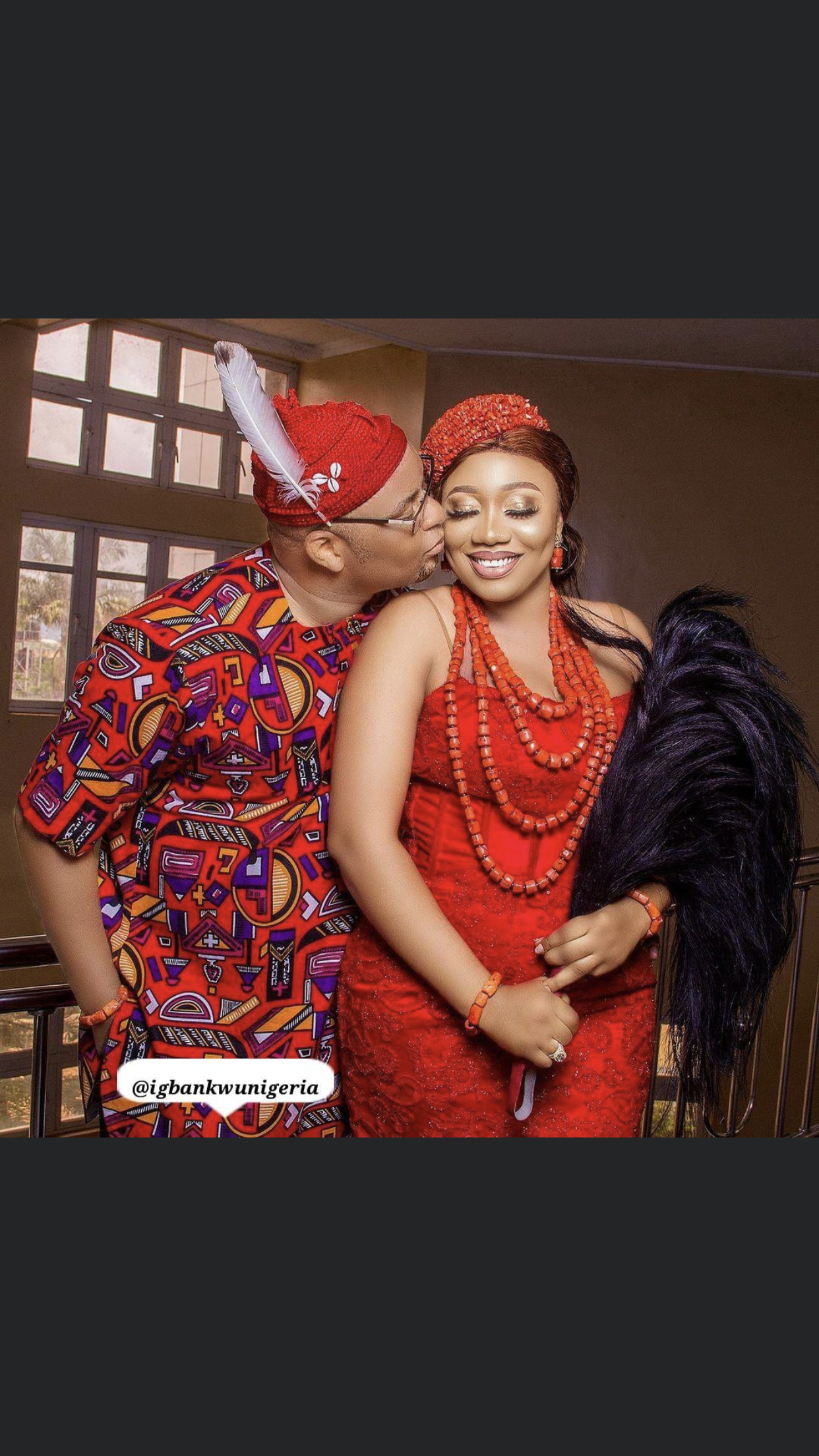
Thank you for reading! Don’t forget to engage, re-blog and upvote.
